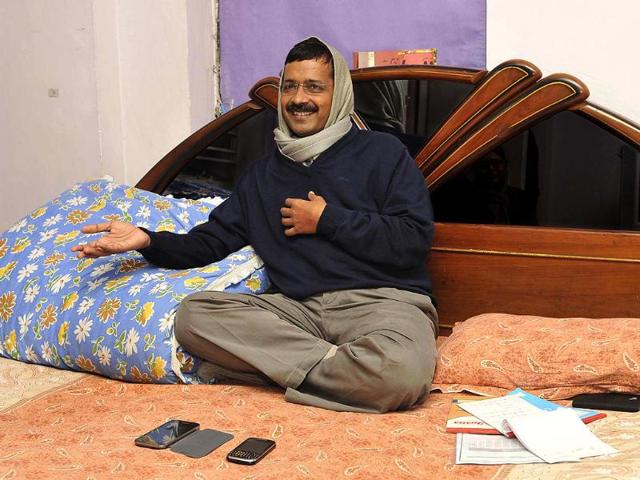Deconstructing the mask of anarchy
It is for Kejriwal to disprove that his brand of anarchism is a variant of populism masquerading as social activism, writes Prasenjit Chowdhury.
When we saw Arvind Kejriwal and activists of AAP fighting a pitched battle with the Delhi Police, it offered a unique sight. Rarely have we seen a chief minister declaring himself an anarchist, an adherent of an ideology that believes that all forms of government or authority are oppressive and should be abolished in order to attain equality and justice. How can a person with all the trappings of power that a State provides disown them? One thought that AAP chose to acquiesce in power of its own accord.

Thus, when we see that the State, upon non-State assumptions of victimhood, tries even to wage a symbolic battle with itself, one sees a self-denial at work. Drawing popular imagination is one thing, but losing sight of priorities of governance, blinded, in effect, by populism, is another. West Bengal CM Mamata Banerjee, a past master of street politics, is only lately beginning to learn the hard way that governing a state is way tougher than complaining against it.
Ironically, Kejriwal, a product of our system of indirect democracy, a method of governance consisting of elected representatives, seems more drawn to direct democracy whereby all citizens are permitted to influence policy through means of a direct vote (a referendum). In our parliamentary democracy, Kejriwal seems to forget that every claimant to power is condemned to be revisionist and reformist, because no matter whether one likes it or not, once in government one has the remit of changing the system from within, as Kejriwal did, by hitching himself to the electoral bandwagon.
Does Kejriwal agree to the diktats of the French writer Pierre-Joseph Proudhon, generally regarded as the father of modern anarchist theory, who in his famous 1840 pamphlet ‘What Is Property?’ argued that property was profit stolen from the worker, who was the true source of all wealth? Does he conform to the Russian aristocrat Mikhail Bakunin who preached that isolated acts of political terror would spur people on toward social revolution?
Could one ask him if India in 2014 is ripe for a zeitgeist of the 1880s and 1890s when anarchism was associated with a wave of assassinations of heads of States, including Russian Tzar Alexander II, the French President Sadi Carnot, and the US President William McKinley? Does he believe that the mass following enjoyed by AAP is akin to anarchism’s only real mass following in Latin countries including Spain, Portugal, Italy, and South and Central America (in the form of the militant organised labour movement anarcho-syndicalism) in which anarchists played roles in many failed attempts of general strikes, aborted peasant uprisings, revolutionary movements in Russia in 1905 and 1917, and in the Spanish Civil War (1936–39) until their defeat by fascist General Franciscoz Franco?
That brings us to the point when anarchists want to justify the end by undemocratic, even fascistic means like choosing to arrest a citizen without an arrest warrant or seeking to change a putative police jurisdiction not by pitching for the long rope of constitutionality, but by invoking ribald street justice. It is true that the labyrinthine ‘system’ of parliamentary democracy is often reluctant to change itself, and agitprop seems to hold a lure to put a change in effect, but not in the long run.
Kejriwal said he wanted Delhi’s political elite to feel the kind of anarchy that lawlessness brings to the lives of normal citizens. There is indeed a need for a vigilant social activism, if not to remedy many ills of the ‘functioning anarchy’ that is India but to drag them to public scrutiny, as showcased many times over by the likes of Jayaprakash Narayan, Baba Amte, Anna Hazare and many others. Social activism today is suspect more for being driven by a crass careerism than by a missionary idealism to change society. It is for Kejriwal to disprove that his brand of anarchism is actually a variant of populism masquerading as social activism.
Prasenjit Chowdhury is a Kolkata-based commentator
The views expressed by the author are personal





